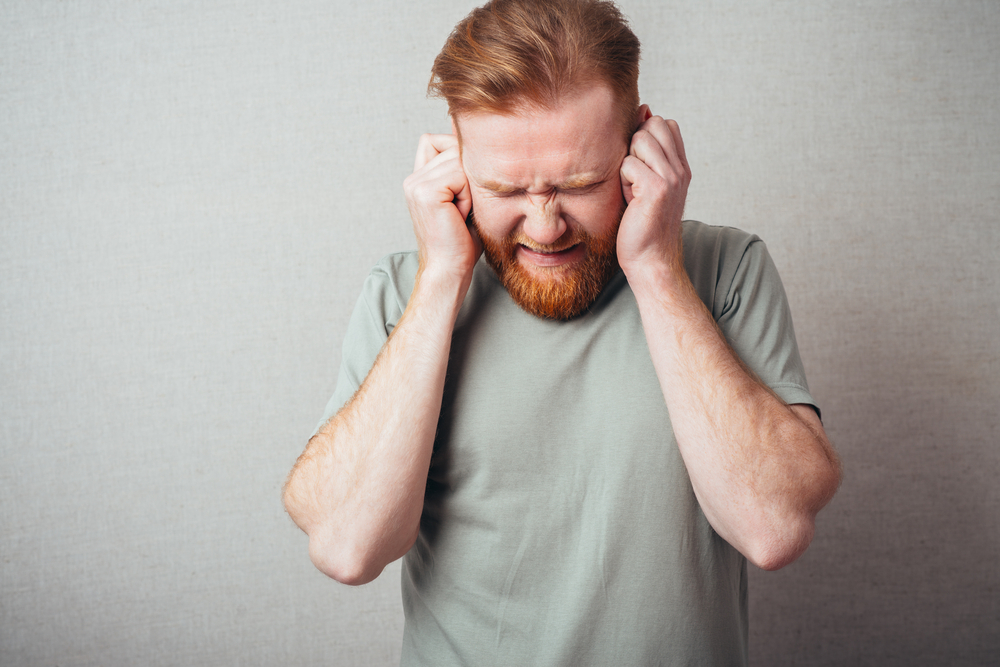

Intolerance to Loud Noise – Causes, Diagnosis, and Treatment at Emirates Hospitals Group
Intolerance to loud noise, also known as hyperacusis, is a condition where a person experiences discomfort or pain in response to sounds that others find tolerable. This condition can significantly impact daily life, social interactions, and mental health. Understanding the causes and available treatments is essential to managing this condition effectively.
Causes of Intolerance to Loud Noise
- Hearing Loss: Damage to the hair cells in the inner ear, often caused by aging or prolonged exposure to loud sounds, can lead to noise intolerance.
- Tinnitus: Ringing or buzzing in the ears, often accompanying hearing loss, can make individuals more sensitive to loud noises.
- Migraine: People with migraines often experience increased sensitivity to sound during or between episodes, leading to noise intolerance.
- Ear Infections: Acute or chronic ear infections can cause sensitivity to sound due to inflammation or fluid buildup in the ear.
- Neurological Disorders: Conditions like brain injuries, multiple sclerosis, or other neurological issues can affect the brain’s processing of sound, leading to hyperacusis.
- Mental Health Conditions: Anxiety, stress, or post-traumatic stress disorder (PTSD) can heighten sensitivity to environmental stimuli, including sound.
- Medications: Some medications, such as those used for chemotherapy or certain antibiotics, can increase sensitivity to sound.
- Temporomandibular Joint (TMJ) Disorders: Problems with the jaw joint can cause discomfort or pain in the ear area, exacerbating noise sensitivity.
Diagnosis of Intolerance to Loud Noise
Diagnosing intolerance to loud noise involves a thorough examination and assessment to identify underlying causes. Key diagnostic steps include:
- Medical History and Physical Examination: A review of symptoms, exposure to loud sounds, and any associated conditions like hearing loss, tinnitus, or migraines.
- Hearing Test: Audiometry is used to assess the hearing ability and determine if there is any hearing loss that could be contributing to noise intolerance.
- Tinnitus Evaluation: Tests to determine if tinnitus is present and how it may be influencing sensitivity to noise.
- Imaging Tests: In some cases, MRI or CT scans may be used to rule out neurological or structural causes of hyperacusis.
- Psychological Evaluation: A mental health assessment may be conducted if stress, anxiety, or other psychological factors are contributing to noise sensitivity.
- Jaw Joint Examination: If TMJ disorders are suspected, an evaluation of the jaw joint and muscles may be recommended.
Treatment for Intolerance to Loud Noise in Dubai
By identifying the root cause of noise intolerance and implementing a personalized treatment plan, many individuals can reduce sensitivity to sound and improve their quality of life. At Emirates Hospitals Group, our specialists are committed to offering advanced diagnostic tools and effective treatments to help you manage and alleviate the impact of loud noise intolerance.
Treatment for intolerance to loud noise depends on the underlying cause and severity of symptoms. Options may include:
- Sound Therapy: Gradual exposure to soft sounds through specialized devices or therapies can help desensitize the auditory system to loud noises over time.
- Cognitive Behavioral Therapy (CBT): CBT is a psychological treatment that helps individuals manage the emotional response to noise and reduce anxiety associated with sound intolerance.
- Tinnitus Retraining Therapy (TRT): For individuals with tinnitus-related noise intolerance, TRT combines sound therapy and counseling to help the brain become less sensitive to tinnitus and external sounds.
- Hearing Aids: In cases of hearing loss, hearing aids can amplify soft sounds and help individuals better tolerate loud noises.
- Medications: Anti-anxiety medications or antidepressants may be prescribed to help manage the psychological aspects of noise sensitivity.
- Ear Protection: For individuals with severe sensitivity, wearing earplugs or earmuffs in noisy environments can help reduce discomfort.
- TMJ Treatment: If TMJ disorders are contributing to noise intolerance, treatments such as physical therapy, jaw exercises, or dental interventions may be recommended.
- Stress Management Techniques: Relaxation techniques, meditation, and mindfulness can help reduce the stress and anxiety that may be contributing to noise sensitivity.
- Dietary and Lifestyle Changes: Reducing caffeine intake and avoiding triggers like smoking or alcohol can help manage noise intolerance in some cases.
Request an appointment
Please complete the details and we will book you shortly.
